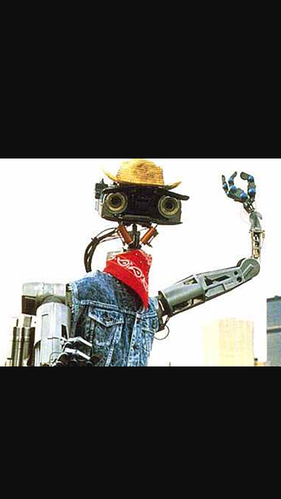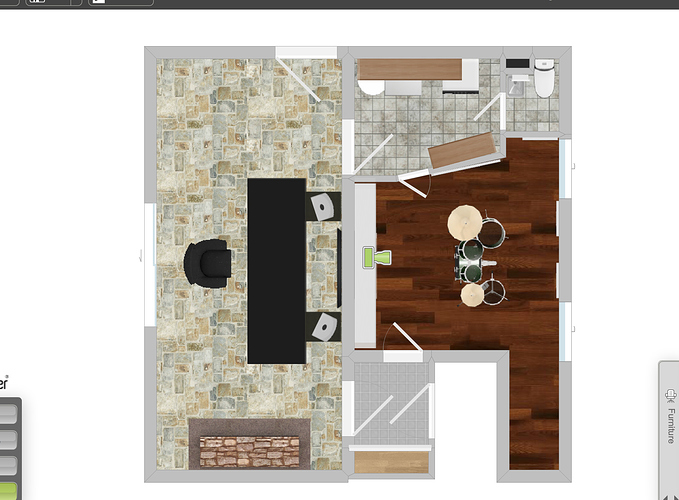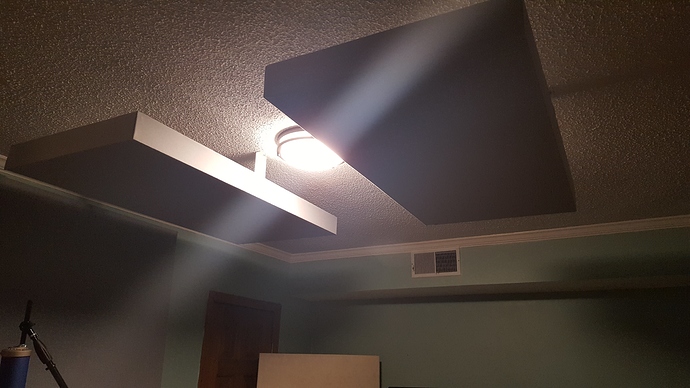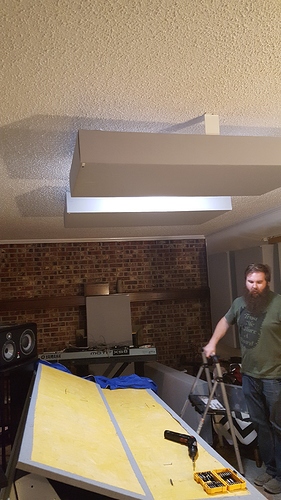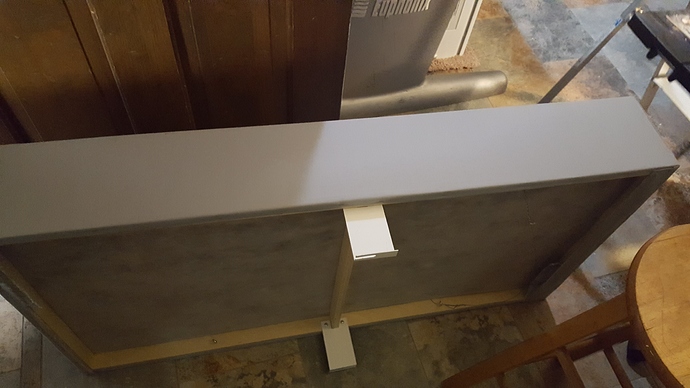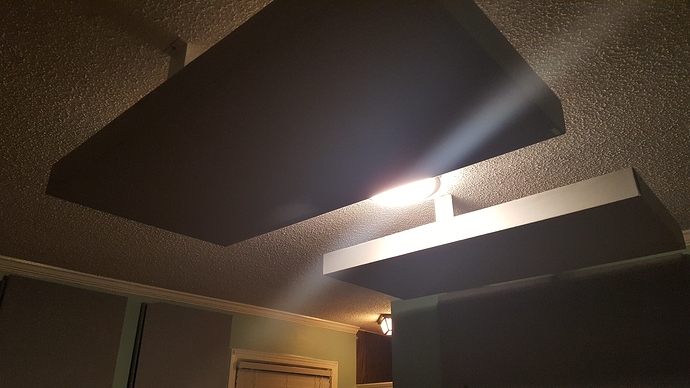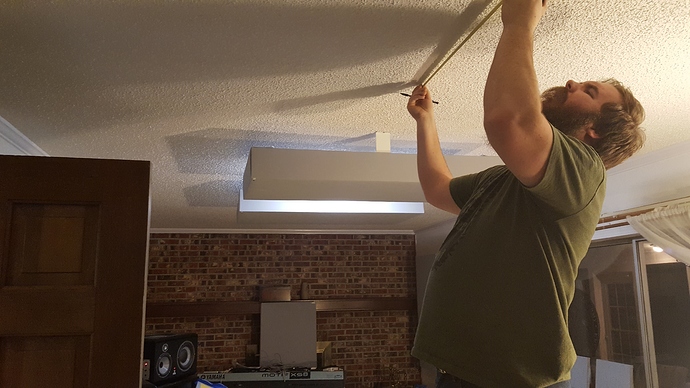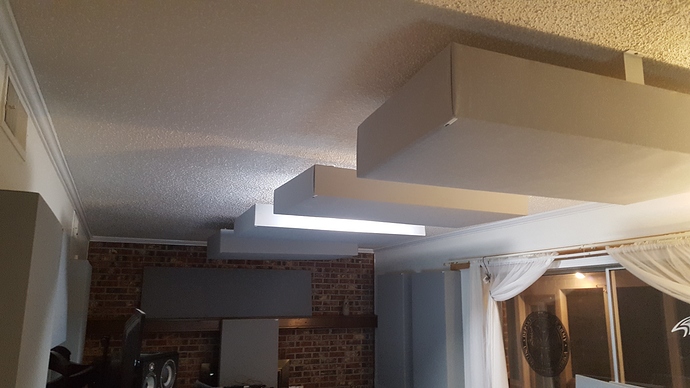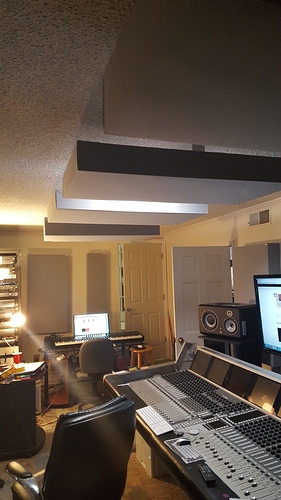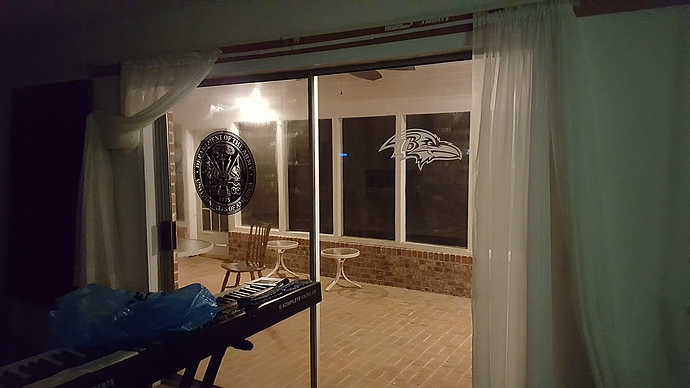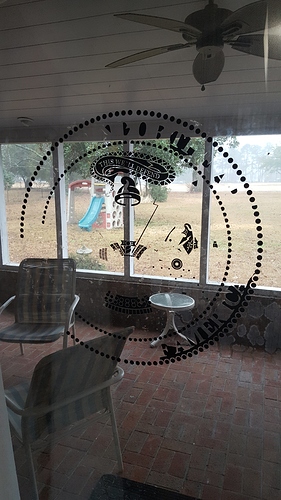Who are you Boz? Short circuit!!! We need input! Iiinnnnnpuuuuuuuut! Lol
They’re good questions. Actually, VERY good questions. It’s a natural curiosity from seeing an impressive studio come together. Jonathan has a chance to be our teacher. I’m interested as well. It IS asking Jonathan to share a lot of detail about his business and maybe personal life, so I understand there’s a level of vulnerability, so he could choose to share whatever he feels comfortable with. 
 Yes they are good questions!
Yes they are good questions!
I was having a laugh mate!
Why so serious lol.
But yeah, definitely be great to know how a studio like that sustains itself as a buisness. @Jonathan obviously has quite a good buisness head that is without a doubt… or very deep pockets!
But yeah i too am interested in the above questions.
Thankyou for pointing that out to me! (Sarcasm)
no disassemble.
I put them together. The System 5 is significantly easier to install than a Neve or SSL. I use digital cabling as much as I can to reduce clutter. It cleans up nicely when 2 light pipe cables cary the same channel count as a 16 channel XLR snake. I also use DB25 (on the back of I/O boxes and lunchbox units) when I have to move data via analog.
I’m assuming this question directed at me and/or @feaker?
I’m re-couping a lot of the build out expenses with broadcast audio. On the music production side, I’m working on some educational resource stuff and with some religious record labels.
For the broadcast guys, I try and shoot for a yearly per-client retainer of about $40k - $60k pr company contract. The workload varies. For the music stuff, if there’s a dependable producer involved, I usually give a flat rate on a case-by-case. And that often depends on how specifically the producer needs my help with. A lot of them will save time, budget, and speed up the workflow by tracking a lot of the material themselves.
I’ve been trying to avoid hourly clients and independent musicians for quite some time.
The real focus for me has always been intellectual property. That’s really how audio and media production companies seem to scale and grow. Not off contracts.
I used cash for the whole thing, and because of the instability of this business, I wanted it debt free. Which was one of the reasons I didn’t attempt to build an $800k facility. I also insisted to the realtor that it would be a property that could be re-sold if need be. You can’t sell a pole barn with Augspurgers and an immaculately soundproofed reflection free zone for anywhere near what you put into it. That’s why I ended up with renovating a house. If in 3 years I manage to secure a position with a game audio company or film franchise on the west coast, I can ditch this place and jet.
Property taxes are a little over $2000 pr yr, since its a commercial building, and not a residential house. (Then they’d be $500/yr because SC is cheap). Then we have utilities, yard care, cleaning, and pest control come through monthly. There’s a normal residential internet bill too. I think that’s really all for the expenses. It took about $20,000 to update the office with smart electronics, a new garage door, overhauling the electrical, replacing the HVAC system, re-doign the bathrooms etc…
Well, if you count catching up on training materials and studying, there’s always something to do. 
Ok. I determined about 5 years ago that it its impossible to scale a company on for-hire contracts. Even if I could expand to several locations to increase regional marketshare, economies of scale hurts you (which is technically diseconomies of scale working against you). And from everything I understand, its because mass production and bulk orders of goods are of no benefit to recording studios (such as McDonalds ordering xxx pounds of french fries for 10,000 locations opposed to one). If the profit margins don’t increase proportionately to the market expansion, the whole scale of business concept is a bust. The metrics just don’t allow it.
Instead what I figured out was that I could leverage labor, which is ultimately why I go for the higher priced contracts and prefer to do it on the flat rate when I accept them. If I can quote a certain price based on work hours, but have interns, assistants, or outsource personnel to do the labor intensive editing (or possibly even tracking), then you can start to grow. The problem is, not fast enough. I’m still not content relying on the higher priced contracts though, and I’ll add some reasons why in a bit.
…I actually have to run…I’ll add more to this later.
Ugh. Ran out of time earlier. STILL renovating this blasted thing, and had to meet a decorator at Home Depot. We needed new blinds, curtains, accent lighting, and some other stuff. Also had to pick up primer to repaint the machine room.
I did say I’d pick up where I left off earlier.
So I had mentioned four distinct types or categories of contracts.
1 -Freelance hourly
2 -Service contracts (like the one’s you’d have with an accounting or I.T. firm)
3 -High-cost flat rate
4 -Intellectual property
Your question about the third…high cost flat rate is really variation of freelance hourly. Freelance hourly stresses artist accountability to have their junk together when they go to track. High cost hourly emphasizes the producers ability to leverage productivity (and efficiency). Freelance hourly can be extremely effective when you’re an I.T. firm or law firm billing at $280/hr.
To me the difference between getting offered an hourly job vs a high cost job is about communicating the big picture. It is literally about earning the clients confidence in your ability to execute an entire list of necessary services in the form of a work order. Where do I find these? You need to start by pitching to a client that even HAS a high cost project up for grabs. There have been times where I saw their need before they even did.
Its me, my wife, an intern, and a kid in audio production college, who’s also an intern.
So here’s the big picture.
In a nutshell, this place is completely designed to acquire and develop film and games. You asked about the tracking room. And what i’d use it for. The top priority was painting, decorating, writing, sound proofing etc… for one purpose: actor/animation voiceover. Occasionally some music stuff as well. The whole idea is to get royalties and percentage cuts of entire projects by figuring out a way to own them or parts of them. Then not partnering with them unless they could prove they had a viable way to sell it. If I can ever get to the point where I can do a job once, but collect 20-30x the amount of cash I would have gotten from it just by doing the music outright or hourly, then a lot of things change 
I have noticed that audio and lots of other ‘solopreneur’ enterprises rely on this. We are now in a “learning economy” which means you have know to compete or to perform. That’s actually something that I admire you for Jonathan, is that you take time to stop and study something that you feel is vital to your future performance. I used to think it was over-analyzing and over-thinking (or novelty and tweaking). While analyzing multiple models of 1176 compressors or the shining attributes of boutique guitar amps seems a bit indulgent, I’m beginning to appreciate your spirit of inquiry. It’s not a bad thing. 
You have been working with or speaking with a “designer”. Good luck. 
That’s leadership and consulting. Worthy of paid services. Even if you don’t bill for that, it can be part of your selling package is that you have insider knowledge that can benefit your clients. That’s actually a HUGE attribute.
In that case, you’re looking to impress the producers and decision makers. The talent likely don’t care that much, though they may report their impressions to whoever signs their paycheck. Working with voice talent should be relatively easy (I assume you already have experience with that), just keep in mind they are very talented and adaptable … yet underneath quite insecure as most actors and performers are. Similar to a music vocalist in some ways. So the “vibe” and relationships you can craft are a key to your success.
Unfortunately, the industry has gone from residual payments to buyouts in a few short years. If you can get into equities and ownership of your projects, you could do nicely if they are successful. Nobody can prove they have a viable way to sell anything. They can only show a track record of previous successful releases, and/or a proven management team that should be up to the task. It’s about like Las Vegas in that arena.
I have a tendency to get flustered and frustrated quicker with things I feel like I can’t control, and knowledge to me is a natural way of kind of coping with that. I get accused of overthinking a ton of thing, but if that’s a character flaw, then I’m probably in good company. For me, after learning the history of Urei, JBL, some small things about the circuit changes in the 1176’s, and why there were 9 distinct models/revisions of the 1176, I felt a lot more comfortable and confident using the plugins. I know. Total disconnect for some people. Because they don’t even sound like the actual model. Right? I dunno. Curiosity and ADHD get the better of me when the Blackface Rev D Waves plugin sounds different than the Blue Strip Rev A Waves plugin…Its just like something in my crazy brain MUST know - why they are different colors? What does that mean? Whats different about the circuit? Why UREI mod the circuit? Jeez. Almost OCD. So you dig until you don’t care anymore, or you dig until you are incapable of understanding anything further.
I think talent performs a little better when they’re really comfortable with the environment. That’s just a hunch for now, and I have no idea if there’s any psychology to support that. I wonder if guys are less susceptible to the cosmetics of their environment (excluding cleanliness and clutter factors). Either way, the room painting and floors were probably a good upgrade for the house. I would have had to do it sooner or later anyway.
People can prove they have distribution, connections, and interest from buyers and licensees already in place. It doesn’t guarantee something will sell, but it minimizes the probability it won’t.
Almost???  Ha, just kidding. It’s pretty extreme infatuation or obsession though. I can tell you have learned a lot through that process though.
Ha, just kidding. It’s pretty extreme infatuation or obsession though. I can tell you have learned a lot through that process though.
Yes, calculated risk.
Yes, comfort, mood, atmosphere, all those can help. Since it sounds like you will be doing longer sessions for video game audio (those can take several hours or a whole days at times) it might be more crucial for you. They may be hanging around at times, so the more like “home” it can be might help. I think it’s different than musicians though. There are similarities in very creative areas like video games to music as you have to get into an imaginary headspace. Doing commercial VO would be more straight forward. The main thing is that it feels “professional” and is relatively tidy. Those Disney animation VO rooms were pretty sterile looking offices, not the most conducive in my opinion, but the big name stars in those sessions didn’t seem to care.
Bravo @Jonathan. Nothing succeeds like success. You do what you have to do, and get the job done. Bravo.
There’s a basic diagram of the main 2 rooms drawn to scale. The mixer is just under 12 ft long. The laundry room is being used as a machine room, and the outboard gear is mounted on racks to the left of the mixer against the far wall.
I see that you strategically have the the toilet set up in close proximity to the drummer. That’s smart thinking. Everyone knows the drummer is the musician most likely to use the throne, especially if they’ve been drinking coffee.
lookin good, what are those traps on the ceiling? GIK 244?
My question too, those sure look like GIK traps… I love mine!!

It was raining all day I the storm kept knocking the power out. Gave my intern something do to haha.
Before
After:
Hey man. Yes sir. 244s in the center on the ceiling, and monsters on the side. 12 of the 15 traps have range limiters (the membrane under the fabric that kicks back frequencies over 400 hz). I put the monsters on the side mainly because of where were able to find studs. The monsters behind the monitors are full range.
